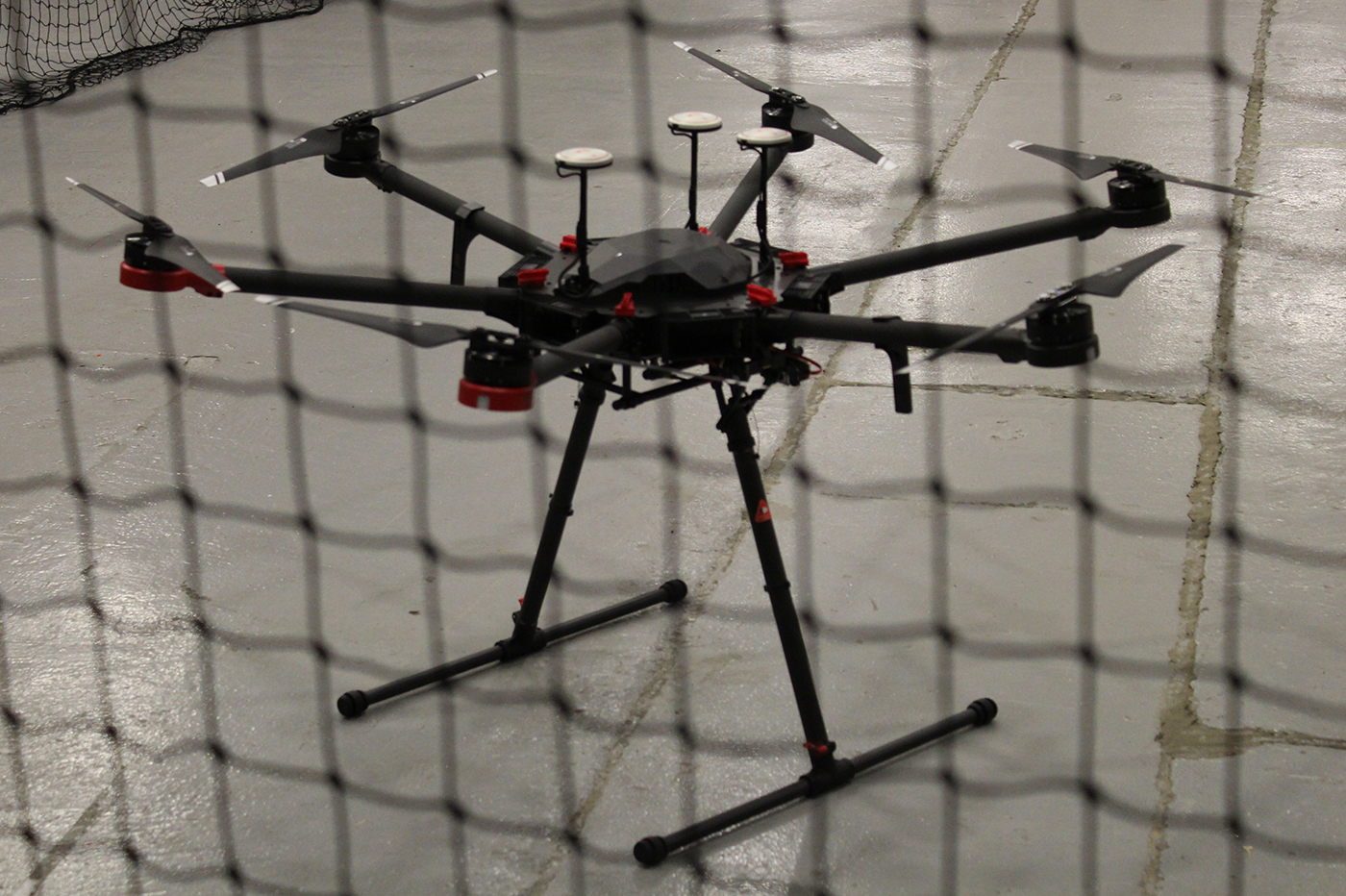Academics, Researchers and Postgraduate science and technology students from four countries on the €1.2m project will develop pioneering solutions for disaster relief using multi-agent drone systems.
By Mr John Stevenson (Senior Communications Officer), Published
City, University of London’s Professor of Autonomous Systems and Machine Intelligence, Professor Nabil Aouf, is the lead academic on the SAPIENCE project, which is funded through the Science for Peace and Security (SPS) Programme of the North Atlantic Treaty Organisation (NATO).
SAPIENCE will involve a competition among teams of MSc and PhD students from four collaborating institutions: City, University of London (UK), University of Alabama, Huntsville (USA); Delft University of Technology (Netherlands) and the University of Klagenfurt (Austria).
Background to SAPIENCE
The SPS Programme invited a small number of leading academics from NATO and NATO partner countries (including Professor Aouf) with expertise in autonomous systems and AI to work on a drone system project. The experts were then tasked with fleshing out a competition along the lines of those which would be usually developed by the Defence Advanced Research Projects Agency (DARPA).
In consultation with the SPS Programme, and in short order, the members of the consortium devised the SAPIENCE project which was approved by NATO Allies.

In addition to Professor Aouf, Co-Director academics on the project are Dr Bryan Mesmer (University of Alabama, Huntsville); Professor Stefan Weiss (University of Klagenfurt); and Dr Ewoud Smeur (Technical University Delft).
Unique technical challenges
Many competitions for drone development have been proposed to demonstrate the capabilities of this type of unmanned vehicle, its limits, and what could be developed to increase their adoption in real world applications. However, the challenges proposed by Professor Aouf and his colleagues are unique.
The SAPIENCE competition is envisaged to extend the problem addressed from scenarios requiring one drone to indoor and outdoor scenarios requiring multiple cooperative drones doing joint tasks together.
In fact, SAPIENCE proposes to address three technical challenges identified by the NATO experts’ community. It will showcase state-of-the-art developments in technical solutions for single and cooperative vehicles within different settings and multiple scenarios.
The competition will expose students to challenges of increasing levels of difficulty, hosted in three different nations. The events will be shaped around the technical challenges of Data Fusion, ‘Sense and avoid’, AI, and Fault Tolerance. The goal of the competitions is to stimulate innovative solutions in these areas that can be applied to disaster relief scenarios.
Professor Aouf says:
“The project may directly lead to advances in the practical use of drone systems for emergency response. The participating teams will have to come up with innovative ideas to tackle the posed challenges, which may advance the state of the art. The competition can even have a broader impact on the field of drone technology. By promoting innovation, collaboration, and knowledge sharing, the competition can help to bring about important advances in the field and contribute to the overall growth and development of drone technology.”
Dr Claudio Palestini, Head of the NATO SPS Programme, said:
"SAPIENCE is a pioneering project for the Science for Peace and Security Programme. It is different from the conventional research and development supported by the SPS Programme. This project encourages multinational teams to face the complexity of civil emergency scenarios through multi-agent drone systems, fostering both collaboration and a healthy dose of intellectual competition. In this project, we expect to see different approaches and solutions to tackling technical challenges of interest for our Alliance, from which different expert communities can learn.”
In terms of the impact on the participants, the SPS-supported competition offers a unique opportunity for individuals and teams to gain practical experience in designing, building, and testing drones which operate under challenging conditions. Students in participating teams may also be in position to take their innovations to the market and start companies which make these technologies available to a broader audience. Eventually, this is expected to lead to off-the-shelf disaster-relief UAV systems which can employed in the real world.
For further information on Professor Aouf’s work at City, please visit this weblink.
